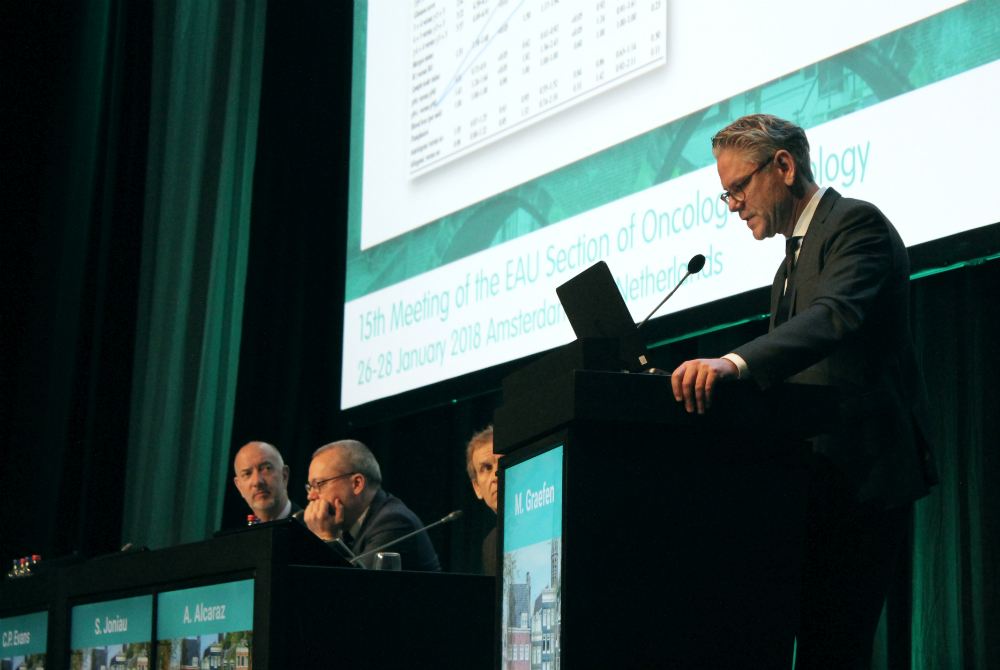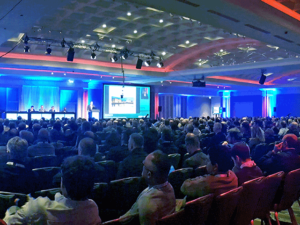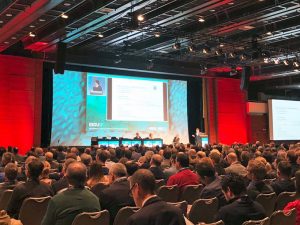Two sessions that focused on prostate cancer (PCa) covered topics such as genetic testing in inherited PCa and the varying perspectives on lymph node dissection.
In the day-one session “Prostate Cancer I: Diagnosis, pathology, screening, active surveillance”, Prof. A. Alcaraz (ES) stated that the knowledge of an individual’s genetic profile can identity patients at risk of PCa development, and allow the personalisation of treatment.
In his lecture “Genetic testing in inherited prostate cancer”, he said that “Improved knowledge of the genetic changes of PCa, both germinal and somatic, will change our clinical practice.” He added that the germinal genetic profile can predict the risks in PCa development.
Prof. Alcaraz concluded that in selected high-risk populations, family history, hereditary syndromes, early development and potentially metastatic disease warrant genetic predisposition assessment.
Continuing the PCa-centred sessions, “Prostate cancer II: Locally advanced” commenced today with the discussion, “Is lymph node dissection necessary in prostate cancer?” examining the American and European perspectives in contrast.
Prof. C. Evans (US) said that selection of patients for primary pelvic lymph node dissection (PLND) should be > 5% risk of lymph node involvement (LNI). “Extended lymph node dissection (ePLND) detects greater number of lymph node metastasis especially along the internal iliac artery chain but results in higher complication rate,” said Prof. Evans. He said that survival improvement with ePLND is not proven and detection of positive LNI possibly improves survival through adjuvant therapies.
To compare, Prof. M. Graefen (DE) discussed the European views which included performing ePLND in intermediate-risk PCa if the estimated risk of positive lymph node exceeds 5%, and performing ePLND in high-risk PCa. He added that limited lymph node dissection (LND), and LND in low-risk disease should not be performed.
According to Prof. Graefen, the uncertainty on the impact of lymph node dissection on prognosis is recognised. He stated that the increase of morbidity with increasing extent of PLND is proven and the functional outcome is not impaired. “There is no doubt about the diagnostic value of PLND,” said Prof. Graefen. “Randomised control trials are needed to identify patients that benefit PLND.”
Part one of the PCa session was chaired by Prof. M. Brausi (IT) and Prof. F. Debruyne (NL); and part two by chairpersons Prof. A. Alcaraz (ES) and Prof. S. Joniau (BE).





